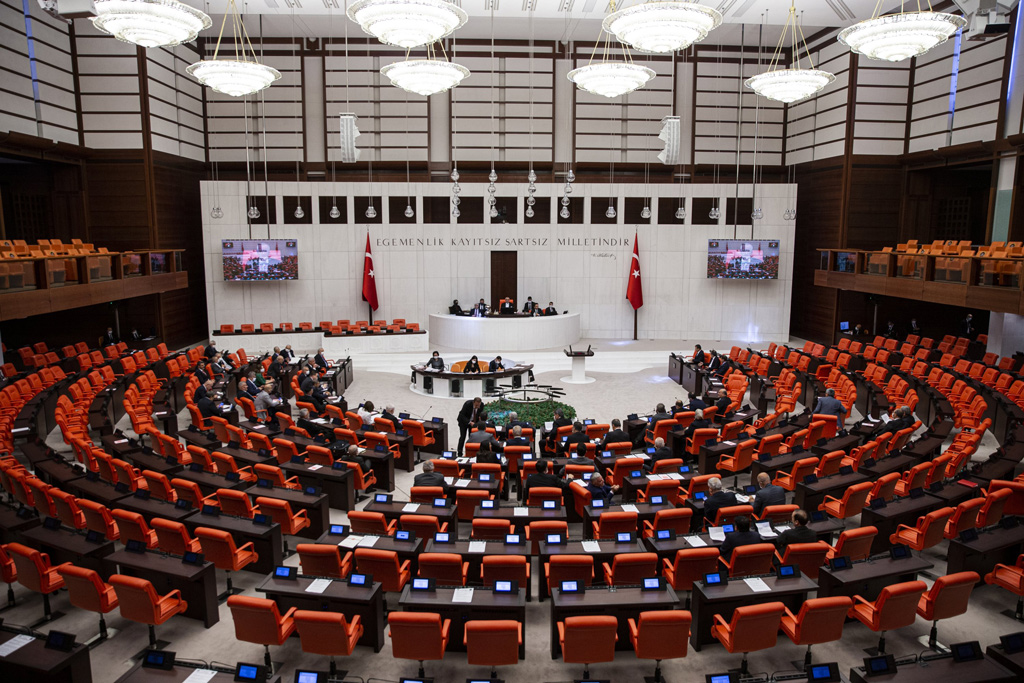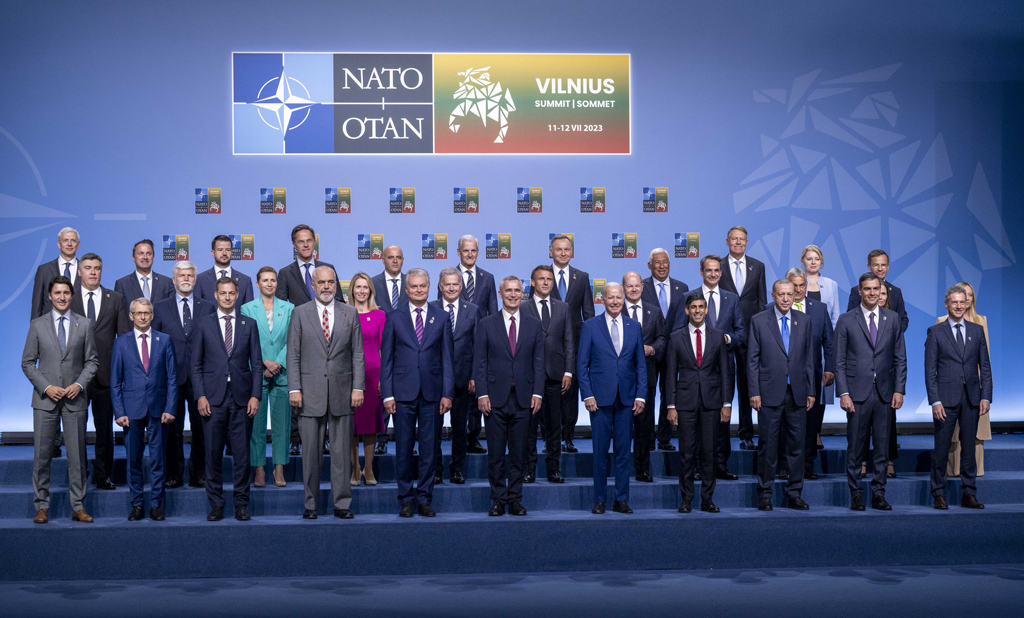
Tough questions facing opposition bloc in Turkey
The opposition parties in Turkey are having trouble preparing a proper strategy for their road to the upcoming elections
Share
Turkey’s new election law, the government’s effective policy toward the Ukraine crisis, Viktor Orban’s victory in the Hungarian election, the "joint candidate" debate around the opposition’s table for six and calls for the formation of a third electoral alliance have created a complex environment for the "brain trust" behind the opposition. Throwing the claims of the pro-government People’s Alliance into the mix, one reaches an extremely broad area of discussion. In this sense, the diversity of arguments parallels the multitude of political parties and figures in Turkey.
It remains unclear how the six opposition parties will shape their candidate lists in light of the new law’s passage. Felicity Party (SP) Chairperson Temel Karamollaoğlu proposed the formation of a "third alliance within the (pro-opposition) alliance," signaling his intention to subsume the Democracy and Progress Party (DEVA) and the Future Party (GP) under his own movement. The requirement of political parties to claim parliamentary seats with their own voters alone has weakened the hand of fringe parties at the negotiating table. The third alliance debate, which started in the media and was reflected by Karamollaoğlu’s remarks, is a fresh response to that situation.
Indeed, the six-party opposition bloc’s supporters were disturbed by Democratic Party (DP) Chairperson Gültekin Uysal saying that the joint presidential candidate must be selected from among individuals who were not "jointly responsible for the 20 years of (Justice and Development Party) AK Party rule." It is certainly concerning that the former AK Party members, who could stomach sitting next to the main opposition Republican People’s Party (CHP) and possibly contesting the parliamentary election on that movement’s lists, cannot seem to be accepted as honorable members of the opposition front. After all, GP Chairperson Ahmet Davutoğlu and DEVA Chairperson Ali Babacan, who respectively served as prime minister and deputy prime minister, cannot seem to rid themselves of the "responsibility" of the AK Party’s actions over the last two decades in the eyes of the opposition.
Nor is it possible to say that the DEVA and the GP share the CHP or Good Party's (IP) perspective on foreign policy, Syria, refugees and the economy. Moreover, both parties face a serious contradiction. They have taken a seat at the opposition’s roundtable, but they experience constant pressure to "self-criticize." Nowadays, the opposition also reminds them that they are becoming less and less important. The two parties, which the opposition’s most excited members constantly question, do not seem to be comfortable within the opposition bloc. At the same time, AK Party supporters, whom they hoped to win over, keep asking them why they have "betrayed the party." That question happens to be vitally important for voters in the Anatolian heartland and, asked emotionally, has the potential of undermining their balance.
Under the influence of the new election law, the feeling of being stuck between a rock and a hard place could make them open to exploring the idea of a third alliance, which Karamollaoğlu has raised. It also remains to be seen, however, whether those three parties could actually make an attempt to cross the 7% threshold or are just trying to earn the opposition’s respect.
The Ukraine crisis and the Hungarian election have unnerved the opposition’s mentors. The media reports them as warning everyone that "inflation does not strengthen the opposition," "the election victory is not guaranteed," "there is not much time left until the election," "those that split hairs will be disappointed," "it is time to focus on a common platform rather than fight over potential candidates," "the discussion over candidates is a trap," "the opposition should identify its core principles" and "the opposition is taking too long to pick a joint presidential candidate."
Certainly, the main contradiction, which the six opposition parties and the Peoples’ Democratic Party (HDP) circles face, is that the arguments of each potential joint candidate – Kılıçdaroğlu, Istanbul Mayor Ekrem Imamoğlu and the capital Ankara's Mayor Mansur Yavaş, all of whom happen to be CHP members – are refuted by the supporters of others. If one were to include IP Chairperson Meral Akşener in that list, the opposition ends up with more chaos than it can handle. On those occasions, the disagreements, which had been swept under the rug, fearing that they could "play into the government’s hand," resurface. That chaos, in turn, spread panic among the opposition’s brain trust, whose warnings are promptly transformed into lines of criticism by the ruling party.
Tags »
Related Articles







